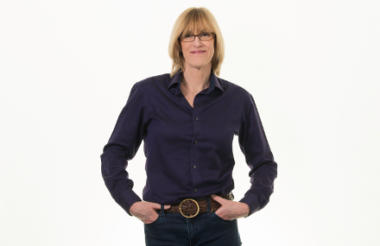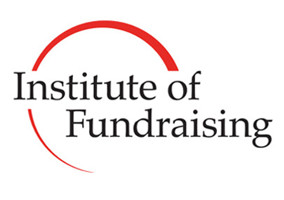Amanda Bringans has just been confirmed as the next chair of the Institute of Fundraising. Ahead of this week’s conference she spoke to Civil Society News about her plans.
What attracted you to apply for the role of chair of the IoF board?
I think it’s one of the best and most exciting jobs in the whole of the fundraising sector. I feel very honoured to have been chosen by the Institute’s board as the new chair-elect and, provided my nomination is supported at the AGM in July, I am very much looking forward to it.
As someone who has worked in the fundraising sector a long time, it was simply too good an opportunity not to take up. These are important and exciting times in fundraising and for the Institute of Fundraising’s members, and I wanted to play a role in that.
Having been made chair elect, what are your immediate plans for when you take up your new role?
The Institute of Fundraising is in the process of consulting with its members on its new five-year strategic priorities document. Ultimately, I’m here to help Peter Lewis and the rest of the fantastic team here at the Institute of Fundraising to finish the consultation and do the best we can for our members.
Where do you want the IoF to be at the end of your three-year tenure?
A I’ve said we’ve just launched its new five-year strategic priorities, and ideally at the end of my tenure I’d like to see the IoF push on with achieving the goals set out in the document. These include championing and promoting excellent fundraising, being an influential voice for the sector and enabling our members to excel in their fundraising, amongst other things.
You’re taking over as chair of the IoF in a very different spot to where it was at the beginning of the last chair’s tenure – having been stripped of its regulatory/Code setting functions. What do you see as the IoF’s main role now in the current fundraising environment?
To be a strong and supportive voice for our members and for the wider fundraising sector, for a start. I also think the Institute has a big role to play in terms of training, and we’re looking to really increase the number of people we have coming through our Diploma and Advanced Diploma courses.
I also think the IoF has something of a role to play in advising the work of bodies such as the Fundraising Regulator, the Charity Commission, and others when it comes to helping them regulate the sector as well as possible.
While we no longer have ownership of the Code of Fundraising Practice, the IoF can still play a role in advising and assisting the Fundraising Regulator in that capacity.
Given the atmosphere under which your predecessor had to work, do you think the IoF and the fundraising sector in general is better placed now than it was then to deal with another similar scandal?
I think so. Richard Taylor did an absolutely fantastic job in his time here, under some pretty tough circumstances. I don’t necessarily think we should be worrying or focusing on the possibility of another ‘scandal’, though. The sector has had a tough couple of years, but everyone is pulling in the right direction and I think the IoF has played, and will continue to play, a big role in that.
What do you think the effects of the ICO investigations into 13 large fundraising charities have had on the rest of the sector?
I think a lot of hard lessons have been learnt, but I think the best thing to do is to put this all behind us and try and move forward in an ethical and compliant way.
|
Related articles











